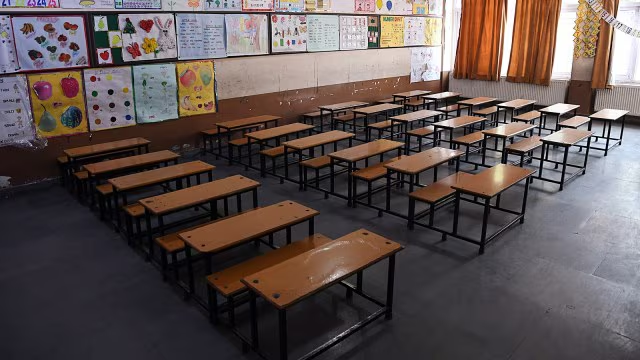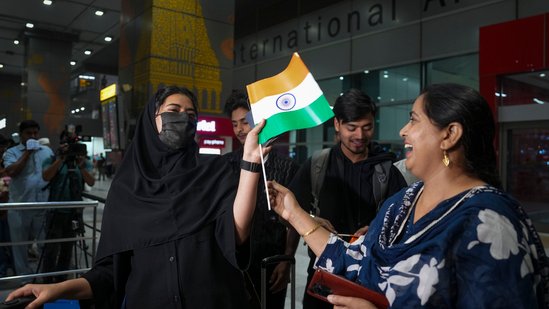The Rs 2,000 crore classroom construction project in Delhi, once praised as a model for educational development, is now at the center of explosive corruption allegations. From forged documents to mule accounts, the Enforcement Directorate’s findings paint a disturbing picture of governance gone awry, implicating former ministers and bureaucrats in one of the capital’s biggest education-linked financial scams.
A Many-Splendored Case of Alleged Corruption
On April 30th, Anti-Corruption Branch (ACB) wing of the Delhi government filed an FIR (first information report) against two top AAP leaders, Manish Sisodia and Satyendar Jain. Both were the former cabinet ministers and held vital portfolios including education and public works.
The FIR had alleged that serious financial irregularities were committed in the construction of additional classrooms in hundreds of Delhi government schools under a project which commenced in 2017 with an aim to benefit students and the school infrastructure. The ACB findings led to the ED to mount a parallel probe into allegations of money laundering by the company.
Initial Plans and Rapid Escalation
For construction of around 12,748 new classrooms from 2015 to 2023, the Delhi Public Works Department (PWD) was engaged. But the initial requirement that went through was for just 2,405 classrooms. Not only was the expansion arbitrary, alleges the ED, it didn’t have sanction from the authority or regulatory approval.
- Initial sanctioned classrooms: 2,405
- First expansion: 7,180 classrooms
- Final count: 12,748 classrooms
- Cost escalation recorded: 49.03%
The Paper Trail: What the ED Discovered
Pursuant to its investigation, ED even carried out searches in as many as 37 places in the national capital in one single day. These were said to include buildings connected to private contractors, bureaucrats and intermediaries believed to be involved in the operation.
Mule Accounts and Seized Evidence
- 322 bank passbooks linked to mule accounts were seized
- Accounts were opened in names of daily wage-labourers
- Original Delhi government departmental files and PWD rubber stamps recovered
Investigators say this suggests an organized system in which documentation and approvals could be manufactured to legitimize faked or inflated invoices.
Forged Documents and Shell Firms
The probe also detected fake letterheads of private contractors and shell firms. Deputy commissioner of police (Delhi) (crime) Rajesh Deo claimed that these letterheads were used to forge false procurement records and fradulent purchase bills, which were furnished to several Delhi government departments. The ED said that the accused had raised bogus invoices of materials and work which were highly over-valued or not done at all.
The premises of one of them, in fact, provided the ED with a treasure trove of what it describes in its report as “substantial incriminating evidence.” That includes a combination of physical records and digital records, indicating an expansive and lengthy effort to divert public money.
Dummy Firms and Bogus Bills
Besides mule accounts and fabricated records, the ED traced some dummy firms which did not even have any physical address or employees. These ghost entities were nothing more than a name and address, however they received large payments for construction-related activities.
“These were not real companies. They had no one on the ground. But on papers, they were shown as contractors or vendors who did work for the PWD,” an official with the ED said.
Some of the work marked as done in the audit hadn’t even started or was completed for a fraction of the work’s listed cost, the agency said. These dummy companies provided a cloak of being an honest business, but in truth money was channeling out through layers of intermediaries.
Web of Luxury Standards and Bloated Prices
One of the key charges in the FIR and the ED’s investigation is the notional excessive use of richer construction specifications. The initial specifications were said to have been changed on the advice of a private company M/s Babbar & Babbar Associates associated with the case.
- Cost inflation resulted from richer material specifications
- Duplicate work was carried out under inflated costs
- Priority-I and Priority-II phases saw a 49.03% rise in cost
Please note these escalations took place without proper auditing, independent oversight, and oversight of the regulators.
Also read, Fake Payment Gateways, Properties In Spain: Inside Rs 800-Crore Forex Scam
AAP’s Response: Political Vendetta?
Obliquely defending their leaders at the receiving end of ED’s not-so-flattering probe/disclosures: The Aam Admi Party has come out with strong reaction or against the woes of its leaders due to the sweeping probe of ED. The party has dubbed the raids politically motivated and timed to distract from the BJP’s current policies in the national capital.
Statement: “The BJP has not stopped at bulldozing Jhuggis – it has been mercilessly demolishing the livelihoods of the poor and marginalised in Delhi. These so-called raids are just another form of scapegoating engineered by the White House to shift away the focus from that reality. The charges are “baseless,” “politically motivated” and have come only to divert attention from the anti-people governance of BJP.”
Politically, the war of words heats up; practically, the investigation shows no signs of winding down. ED is still going through the financial documents, digital communication and project contract to ascertain the complete trail of the suspected money laundering trail.
The Bigger Story – When Politics Meets Money
The Rs 2,000 crore classroom scam is at the heart of deeper questions about how governance and oversight, and indeed accountability, works in our public space. What started as a hopeful effort to upgrade educational infrastructure has, if the charges are true, become the tale of a pervasive abuse of public funds.
This is especially sad news for the general public. Education is no ordinary sector, it is linked to the future of our children as well as to the credibility of a government’s intentions towards protection. That school projects designed to benefit the poorest sections of society can itself be used for fraud only fuels public mistrust there.
The case is even more perturbing due to reports of the use of street dwellers, daily wage workers and people from the marginalized sections to convert cash. They would most likely not even have known that accounts were opened in their names, and they now face the possibility of being collateral damage in a case that has spiraled vastly beyond their understanding or control.
What Lies Ahead?
Already the ED has seized a variety of evidence, both tangible and electronic. But whether this inquiry will lead to convictions is an open question. And for now, the the probe has discovered enough in the way of reasonable suspicion to prompt a more serious look at many of the players involved – private contract workers, consultants, bureaucrats and politicians.
With the ED readying to file a chargesheet, more names may find themselves in the midst of scrutiny. Besides, the agency may consider investigating parallel criminal proceeding (PcP) under the Prevention of Corruption Act and Banks/FI assistance for tracking movement of funds through the mule accounts.
The ACB, too, would feel compelled to subsequently add supplementary charges to those in its FIR, especially since new details have also emerged in the ED’s forensic scrutiny.
Conclusion
The Delhi classroom scam is not just another case of financial irregularity – it is a reflection of what happens when public welfare projects are hijacked for personal or political gain. The revelations from the ED’s probe have triggered serious concerns over transparency, regulatory oversight, and accountability. As the investigation deepens and the political backlash intensifies, one thing is clear: the impact of this scandal goes far beyond numbers – it affects trust, governance, and the core values of public service.
FAQs
- What is the estimated value of the classroom scam in Delhi?
Approximately Rs 2,000 crore according to the Enforcement Directorate. - How many mule accounts were uncovered?
322 bank passbooks linked to fake accounts in names of labourers were seized. - Which political leaders have been named in the FIR?
Former ministers Manish Sisodia and Satyendar Jain. - What is the total number of classrooms claimed to be built?
The project ballooned to 12,748 classrooms from the initially sanctioned 2,405. - Has any radiological or safety breach been reported?
This case involves financial fraud only; no nuclear or radiological elements are part of this case.
Reference
ED says it seized 322 bank passbooks
Stay updated with all the latest news and insights – News Of US






